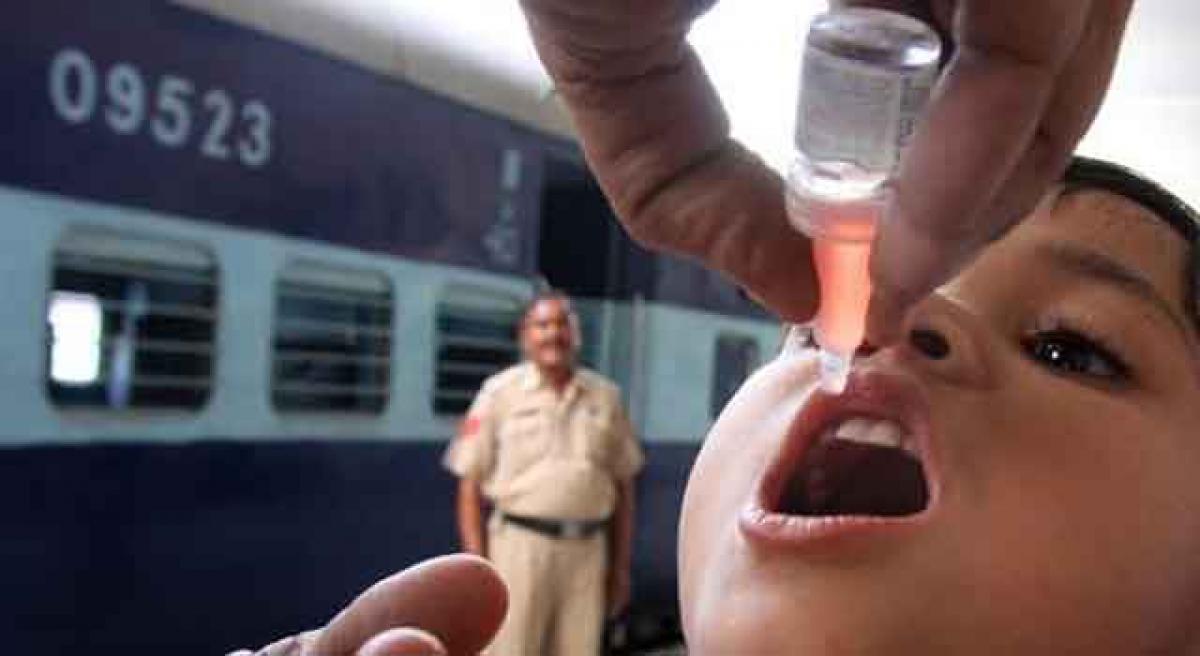Live
- Arjun Das Brings Mufasa to Life in Tamil
- Odisha move to prepare maritime perspective plan
- Jal Jeevan Mission empowering women in rural areas: PM Modi
- Pradhan urges Nadda to set up pharmacy unit in Odisha
- Assembly winter session ends ahead of schedule
- Nepali Army Chief General Ashok Raj Sigdel Strengthens Ties With India In Four-Day Visit
- BRS MLAs, MLCs Skip Second Day of Orientation Classes
- Andhra Pradesh Student Dies in Tragic Car Crash in Leicestershire, 4 Others Injured
- Oppn assails delinking of Waltair div from ECoR
- Rahul Gandhi Vs. Nirmala Sitharaman: War Of Words Over Public Sector Banks
Just In

The Ministry of Health and Family Welfare has denied that P2 strain of polio virus has surfaced in the country at all. Reacting to reports, the Ministry said it was not true that polio virus strain was vaccine derived poliovirus (VDPV) in a sewage sample collected near the Secunderabad Railway Station.
New Delhi: The Ministry of Health and Family Welfare has denied that P2 strain of polio virus has surfaced in the country at all. Reacting to reports, the Ministry said it was not true that polio virus strain was vaccine derived poliovirus (VDPV) in a sewage sample collected near the Secunderabad Railway Station.
No children have been found to be affected by the detected VDPV isolate in the nearby areas. Last case of Wild Polio Virus Type 2 in country was reported 17 years back in 1999.
The detection of vaccine derived polio virus (VPDV) would not change the polio free status. It only indicated the robustness of the surveillance system and willingness of the country to detect any kind of polio virus even from the environment (sewage).
Vaccine derived polioviruses are rare strain of the polioviruses that have genetically mutated from the strain contained in the Oral Polio Vaccine (OPV) A rapid surveillance review of the area revealed that the population immunity against polio type 2 is high as trivalent oral polio vaccine (tOPV) was in use in the state until 24th April, 2016 and two mass vaccination campaign were conducted in January and February, 2016.
As per recent sample survey in the area, 94 per cent of children were found to have received at least three doses of OPV. Therefore, chances of its transmission in concerned area were unlikely.
However, as a precautionary measure against Polio, a special immunisation drive is being held, covering high-risk areas of Hyderabad and Rangareddy districts, starting from 20th June, where an estimated 300,000 children wouldl be protected against polio using Inactivated Polio Vaccine (IPV), the press release said.
The special immunisation campaign would ensure all vulnerable children living in high-risk areas are given protection against polio. As part of the special campaign being organised now, children between the age group of six weeks to three years would be given an additional dose of the injectible polio vaccine (IPV).
Vaccination booths would be set up in the areas being covered in these campaigns. However, there will be no door-to-door vaccination campaign.
The special campaign covering Hyderabad and Rangareddy districts was yet another evidence of India’s strong commitment to remain polio-free, it added.
The last case due to wild poliovirus in India was detected on 13 January 2011 and the country was certified polio-free by WHO in March 2014. The polio-free certification pertains to the absence of wild poliovirus and thus country remains polio-free.

© 2024 Hyderabad Media House Limited/The Hans India. All rights reserved. Powered by hocalwire.com







